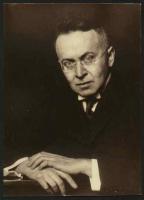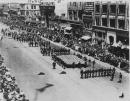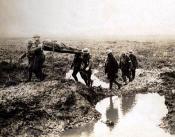Nun weiß ich doch, 's ist Frühling wieder.
Ich sah es nicht vor so viel Nacht
und lange hatt' ich's nicht gedacht.
Nun merk' ich erst, schon blüht der Flieder.
Wie fand ich das Geheimnis wieder?
Man hatte mich darum gebracht.
Was hat die Welt aus uns gemacht!
Ich dreh' mich um, da blüht der Flieder.
Und danke Gott, er schuf mich wieder,
indem er wiederschuf die Pracht.
Sie anzuschauen aufgewacht,
so bleib' ich stehn. Noch blüht der Flieder.
Ich sah es nicht vor so viel Nacht
und lange hatt' ich's nicht gedacht.
Nun merk' ich erst, schon blüht der Flieder.
Wie fand ich das Geheimnis wieder?
Man hatte mich darum gebracht.
Was hat die Welt aus uns gemacht!
Ich dreh' mich um, da blüht der Flieder.
Und danke Gott, er schuf mich wieder,
indem er wiederschuf die Pracht.
Sie anzuschauen aufgewacht,
so bleib' ich stehn. Noch blüht der Flieder.
envoyé par Bernart Bartleby - 27/10/2014 - 14:03
Langue: anglais
Traduzione inglese di Sharon Krebs da LiederNet
LILAC
Now I know, despite everything, that it is spring again.
I did not see it for so much night
And for a long time I did not think it.
Now I notice for the first time, the lilac is already blooming.
How did I find the secret again?
I had been robbed of it.
What has the world made of us!
I turn around -- there blooms the lilac.
And I thank God; he created me anew,
As he created again all the splendour.
Awakened to gaze upon it once more,
I remain standing. The lilac still blooms.
Now I know, despite everything, that it is spring again.
I did not see it for so much night
And for a long time I did not think it.
Now I notice for the first time, the lilac is already blooming.
How did I find the secret again?
I had been robbed of it.
What has the world made of us!
I turn around -- there blooms the lilac.
And I thank God; he created me anew,
As he created again all the splendour.
Awakened to gaze upon it once more,
I remain standing. The lilac still blooms.
envoyé par Bernart Bartleby - 27/10/2014 - 14:05
×
![]()








Versi di Karl Kraus (1874-1936), austriaco, scrittore, giornalista, autore satirico, saggista, aforista e poeta, in “Worte in Versen” (IV sezione), raccolta di poesie scritte tra il 1916 ed il 1930.
Più volti messi in musica da importanti compositori, quali Hanns Eisler, Ernst Křenek e Krzysztof Penderecki.
La Grande Guerra era finita. Nessuno poteva crederci. Nessuno poteva credere che la lunga, orribile notte avrebbe potuto lasciare ancora una volta spazio alla primavera, che tutti ormai pensavano rubata per sempre…
Ma Karl Kraus sapeva che il suo era solo un entusiasmo momentaneo: nel suo capolavoro, la tragedia “Die letzten Tage der Menschheit” (“Gli ultimi giorni dell’umanità”), già anticipava il nuovo orrore che sarebbe giunto di lì a non molto. Lo intuì in tutta la sua chiarezza e, per sua fortuna, il poeta morì poco prima che si inverasse.